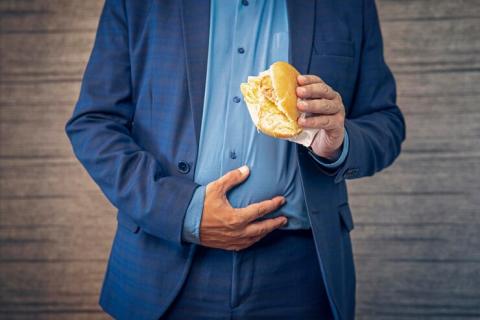Reaction: gluten sensitivity may be partly due to the nocebo effect in non-coeliacs
People who do not have coeliac disease or wheat allergy sometimes reduce their gluten intake because they believe it is the cause of their gastrointestinal symptoms. A study has found that there may be a nocebo effect - negative anticipation of a substance or treatment, the opposite of the placebo effect - on gluten sensitivity in these people, so that the mere thought of ingesting gluten causes more symptoms in those who believe they are sensitive to it. The results are published in the journal The Lancet Gastroenterology & Hepatology.

J Molina - Gluten (EN)
Javier Molina
Assistant doctor at the Digestive System Department of the San Pedro de Alcántara Hospital (Cáceres)
The study meets the highest quality standard and is methodologically unquestionable, with a much larger sample size than usual and with sufficient gluten doses (four slices of bread in two meals). That is why it is published in this journal.
There is already accumulating evidence on the importance of the nocebo effect in food intolerances and in patients with disorders of the brain-intestinal axis (irritable bowel syndrome or functional pathology, in its less modern and euphemistic names). The results of this study are in line with this evidence, underlining the importance of the nocebo effect (negative expectations) as a co-causative of common symptoms in half of the patients with suspected food intolerances.
The main novelty of this study is not only to subclassify patients according to exposure (double-blind) to gluten or placebo, but also into high or low expectations of receiving gluten. They observe how expectation together with gluten intake is the main source of symptoms in the first 12 hours of gluten intake and that these symptoms are greater after lunch than after breakfast (at breakfast there is only one exposure to gluten/non-gluten, at lunch the previous breakfast stimulus is repeated for the second time in eight hours). In a problem as extraordinarily complex and multifactorial as brain-gut axis disorders, the nocebo effect (in addition to food, microbiota or gastrointestinal tract diseases) may be a co-causative of symptoms with food.
This study provides strong scientific evidence to support psychological therapy with the intention of correcting misguided expectations and beliefs in the multidisciplinary treatment of brain-gut axis disorders.
Regarding the limitations of the study, the subjectivity in the assessment of symptoms by patients (inherent in all these types of studies) and the lack of assessment of patients beyond the first 48-72 hours after exposure must be taken into account. In addition, there is a potential selection bias, as patients participating in the study may be more motivated and have better expectations (placebo effect).
Marlijne C G de Graaf et al.
- Research article
- Peer reviewed
- Randomized
- People



